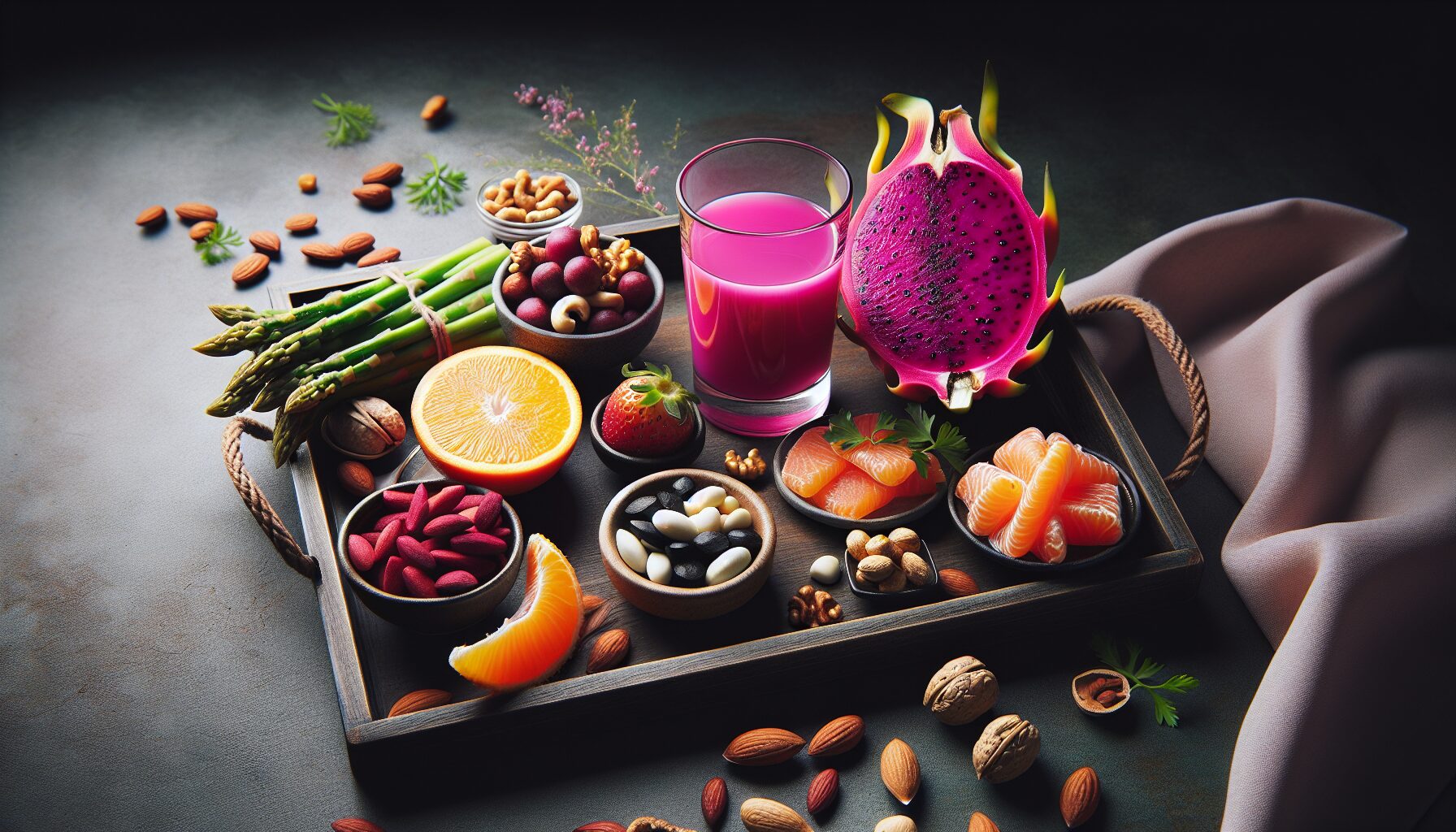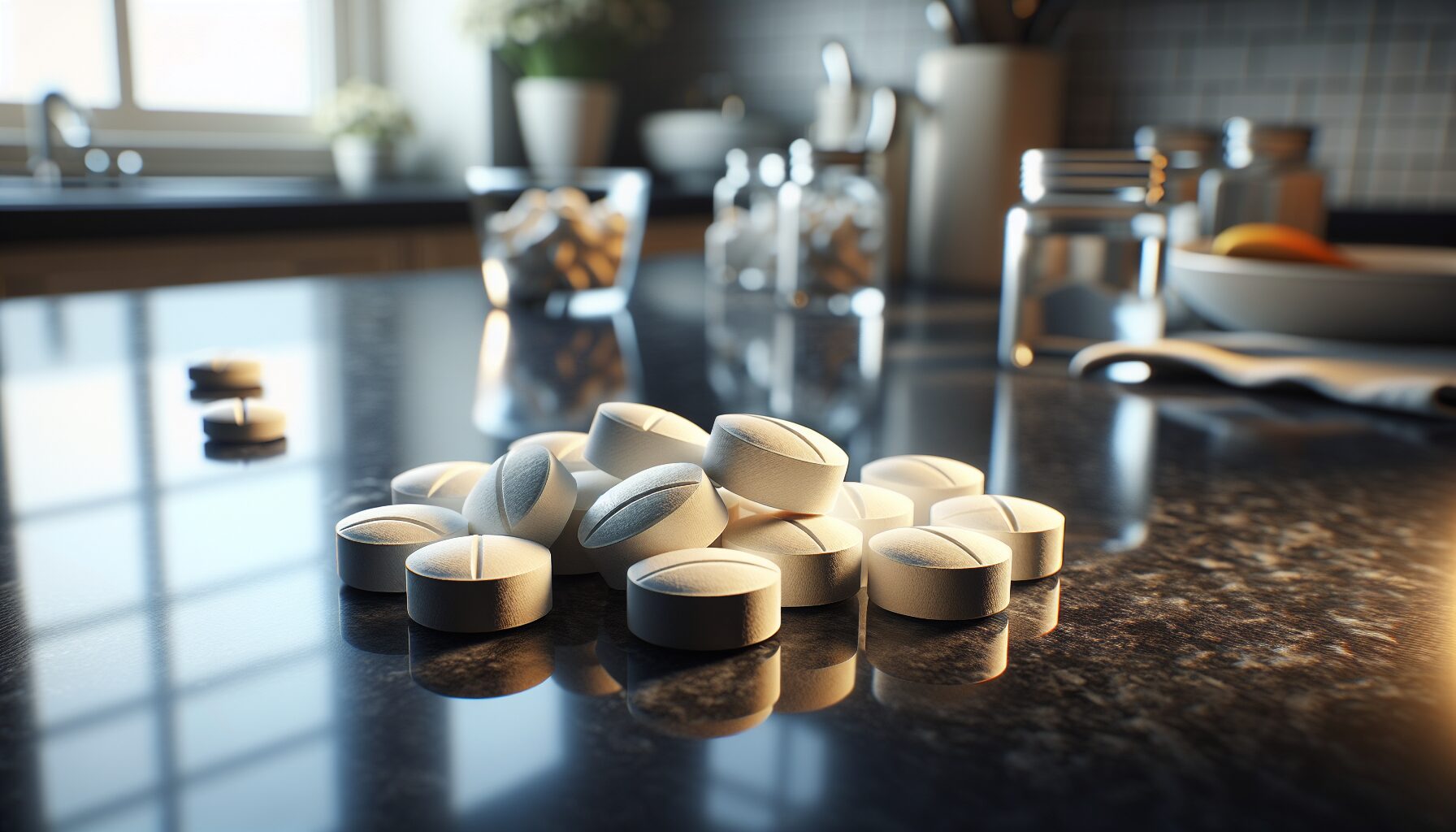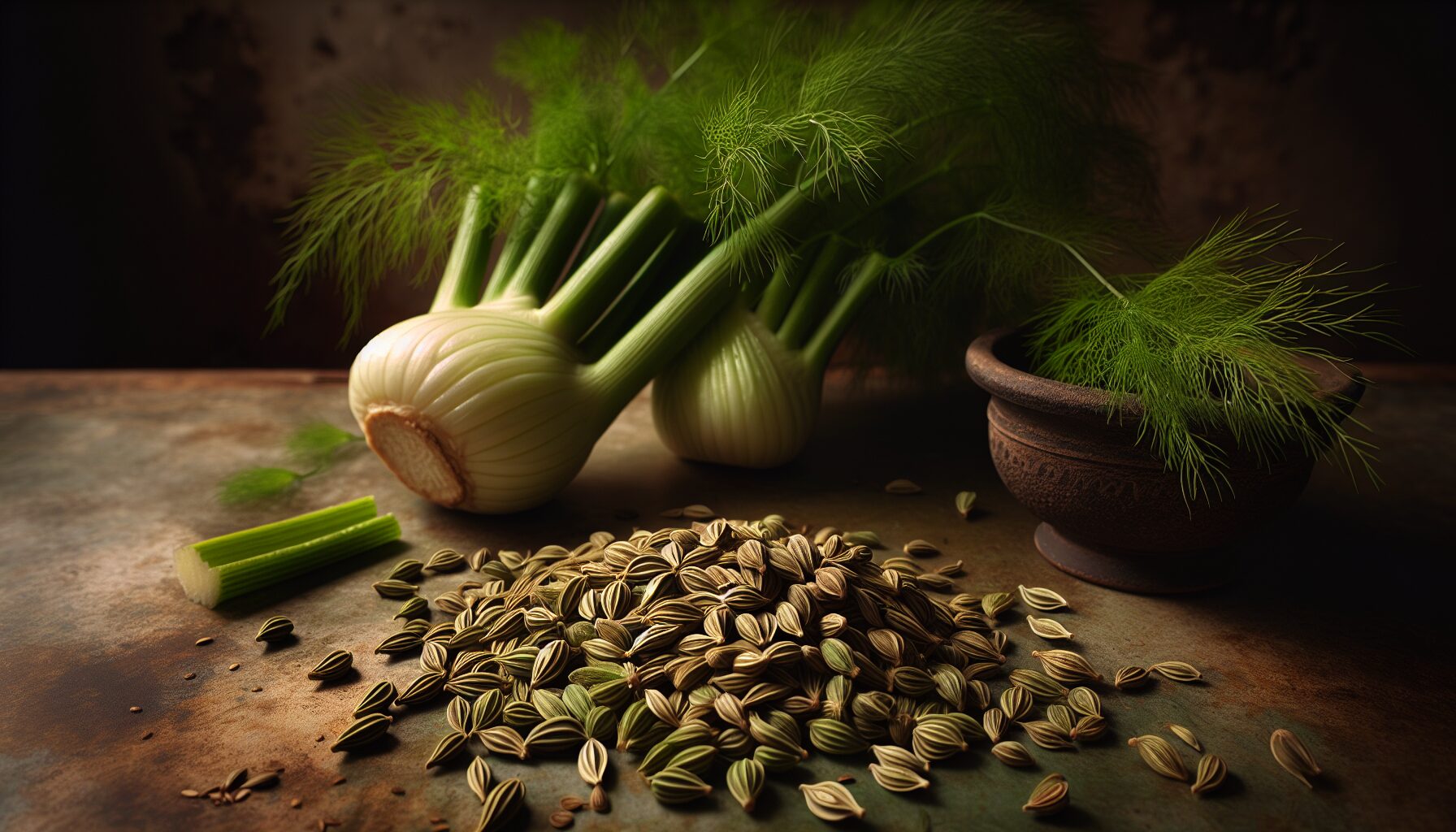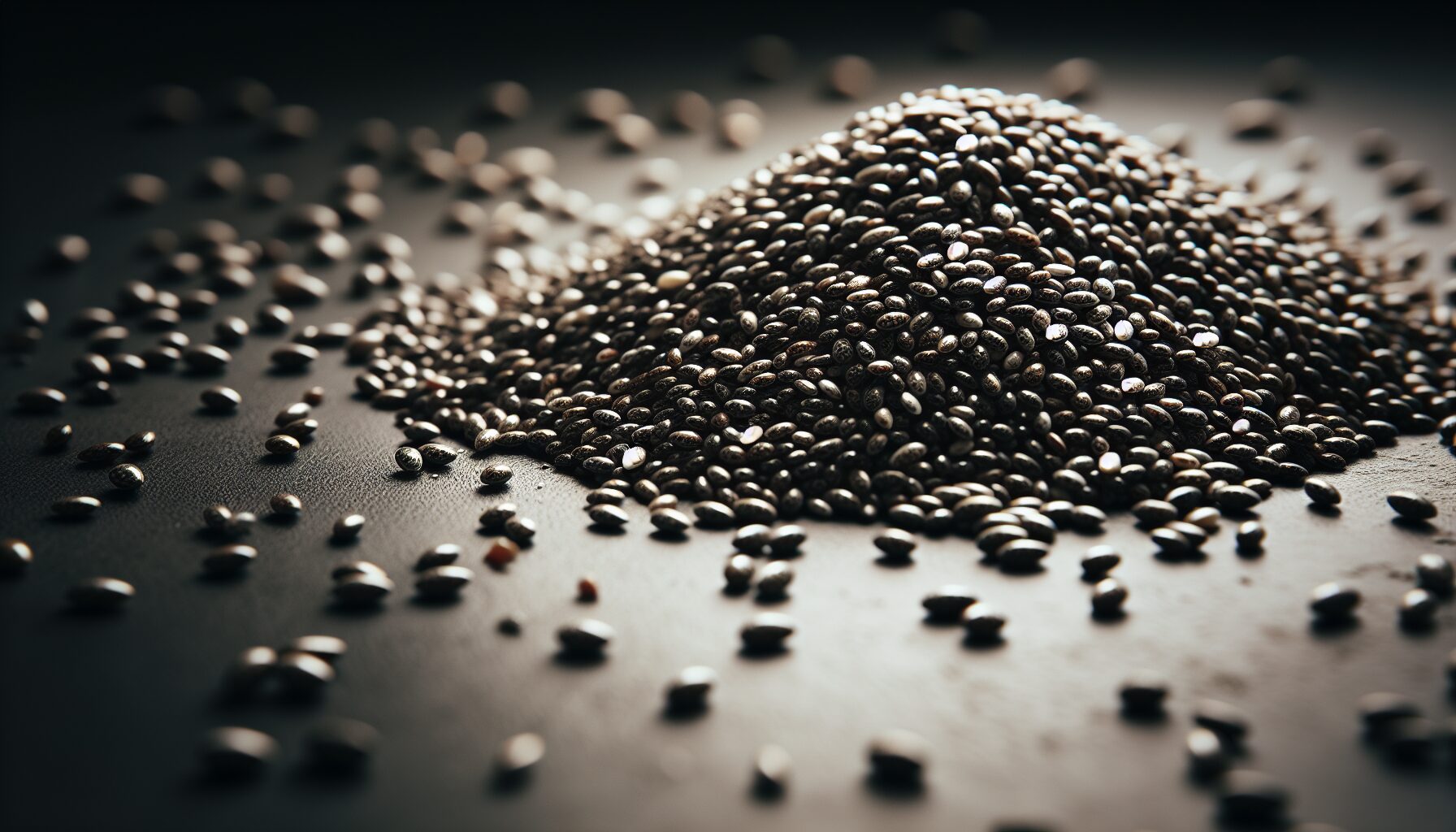
Chia Seeds Benefits
Chia seeds are a nutrient rich food providing potential health benefits through high levels of healthy fatty acids, minerals, polyphenols and also dietary fibre. Certain nutritional qualities mean that they are gaining popularity in the cosmetic and pharmaceutical industries.
Chia seeds are comparable in terms of nutrition to popular cereals such as corn, wheat and flax. It is mainly the healthy fatty acid content of chia seeds that sets them apart from other seeds or cereals. Because of their fatty acid and antioxidant content, chia seeds are thought to reduce inflammatory stress levels within the body.
Another key benefit to eating chia seeds is their high concentration of specific health promoting proteins. The nutrient density of chia seeds make them a potential nutraceutical and functional food that could be of interest to vegetarians. This is also why they are becoming really popular for consumers. Another benefit to chai seeds is that they are gluten free.
Recent studies suggest that health promoting effects of regularly eating chia seeds may include improved blood pressure control, blood lipid profiles and heart protective functions.
In this short article, we will summarize the potential benefits of chia seeds and how they can support your wellbeing.
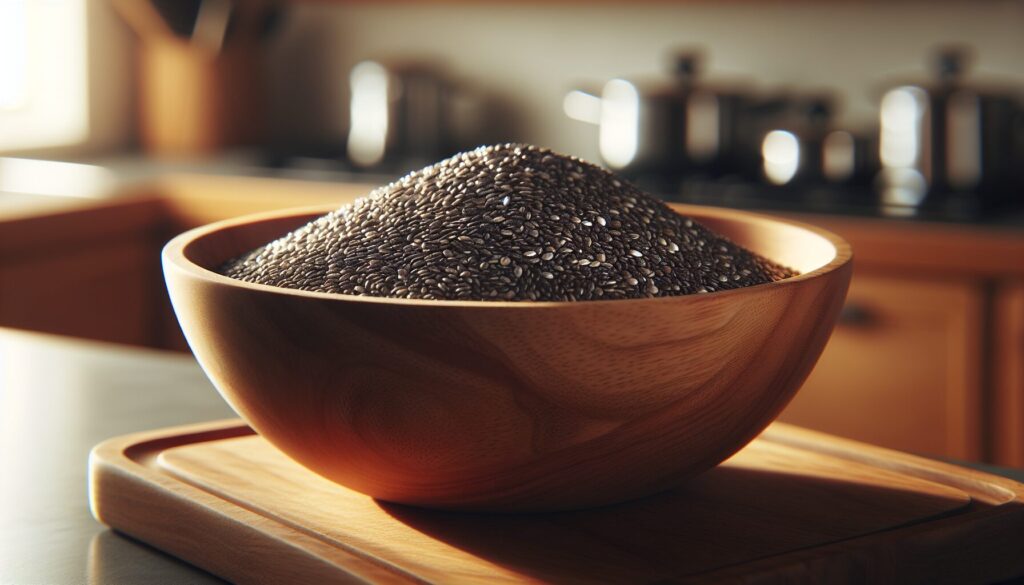
Chia Seed Fatty Acids
As seeds, chia provides a rich source of healthy fatty acids to support the nutritional needs of the body. The fatty acid content within chia seeds is about 30% of its total nutritional content. The great thing about chia seeds is how their protective coating, encapsulates fatty acids within the seeds and slows their oxidisation.
Chia seeds could also be considered to be a healthier source of fatty acids than cooked foods, simply because they can be eaten raw. The cooking process creates oxidised fatty acids, which are unhealthy and contribute to the risks of some inflammatory conditions. Elevated levels of antioxidants in chia seeds may preserve its healthy fatty acid content, adding to its nutrient density.
Chia seeds are increasingly popular in cosmetics because of their skin barrier protecting, moisturizing and antiaging effects. This may be because of their richness in specific fatty acids, reducing skin dryness and improving skin hydration in one study. Research has identified that chia seeds may encourage HDL production and improve blood lipid profiles, indirectly preventing excessive weight gain.
Alpha Linoleic Acid
Chia seeds contain approximately 60 grams of ALA per 100 grams of chia seeds. ALA, or alpha linolenic acid, is a health promoting fatty acid in the omega 3 family of fatty acids. This particular omega 3 fatty acid is found in rich quantities in seeds and nuts.
The potential health benefits of omega 3 fatty acids are really well known and this is a massive plus for the benefits of consuming chia seeds. Consuming high levels of omega 3 is associated with a lowered risk of CVD, hypertension, type 2 diabetes, rheumatoid arthritis, autoimmune disorders and cancer. Some of these effects may be because of the anti-inflammatory influences omega 3 fatty acids seem to have. There is evidence that diets rich in alpha linoleic acid and chai seeds may encourage healthy weight loss.
Omega 3 is also linked to lower levels of depression, improved skin health and brain health. Omega 3 fatty acids may improve the speed of nerve cell transmission, by supporting myelin functioning. They are needed for the overall structural integrity of your cell membranes, while they are also essential for our brain cells.
Linoleic Acid
Linoleic acid is another polyunsaturated fatty acid, part of the omega 6 fatty acid family, found in large quantities within chia seeds. As with alpha linolenic acid, the major dietary sources of linoleic acid are found within nuts and seeds.
There is about 19 grams of LA, in 100 grams of chia seeds. This fatty acid can be used as an energy source or to form crucial parts of our body tissues, providing structural stability. This fatty acid is an essential nutrient that cannot be made by the body and deficiencies can result in scaley skin disorders. Some other potential benefits of omega 6 fatty acids may include anti-inflammatory and anti-hypertensive effects within the body.
Oleic Acid
Oleic acid is normally found in really high quantities within olive oil, but this fatty acid is also found in chia seeds. On average 100 grams of chia seeds contain 7 grams of oleic acid per 100 grams of chia seeds. This particular fatty acid may have a calming effect on inflammation and autoimmune responses.

Chia Seed Protein Content
Around 20% of the chia seed is protein, forming another nutritionally beneficial portion of chia seeds. Chia seed proteins have been shown to be very digestible, containing all of the essential amino acids that the body needs at a minimum.
The protein profile of chia seeds is comparable to cereals and is another reason why their popularity has grown so much recently. For example, chia seed flour cookies have twice as much protein as wheat flour cookies. Whole proteins found in chia seeds that make up most of its protein profile, such as albumin and globulin, may have slight antioxidant effects within the body which lower blood pressure. This means that they may prevent oxidative damages to key organs and tissues in the body.
Human protein requirements are quite high and elevated amino acid levels from protein digestion support increased levels of protein production in the body. This contributes to healthy muscle recovery, immune system functioning, blood cell formation and also wound healing. Bioactive peptides such as those in chia seeds are immunostimulatory, encouraging the production of antibodies.
Glutamic Acid, Aspartic Acid, Phenylalanine and Alanine
The dominant amino acid in chia seeds is glutamic acid. Chia seeds contain about 3.5 grams of glutamic acid per 100 grams. This amino acid may improve brain functioning, considering that it is an important brain neurotransmitter. Neurotransmitters are important for sending signals across the brain and coordinating responses to our environment.
Aspartic acid is present in chia seeds in high quantities, about 1.70 grams per 100 grams. Aspartic acid may support brain health, encouraging DNA and neurotransmitter production for optimised nervous system functioning. Chia seeds contain 1.02 grams of phenylalanine per 100 grams and may be linked to more optimal brain health.
There is 1.04 grams of alanine per 100 grams of chai seeds. Alanine may contribute to optimal brain health by supporting the metabolism and glucose regulation.
L Arginine
Chia seeds are also rich in arginine, containing 2.14 grams per 100 grams of chia seeds. Arginine is an amino with various potential benefits if consumed in the right quantities and supports many functions within the body.
At least 2.5 grams of L Arginine are needed each day, so chia seeds have a protein profile that supports this. L Arginine encourages protein synthesis and stimulates muscle growth within the body. This is ideal for people with an athletic lifestyle. 2 grams of L Arginine a day, supplementary to a healthy diet, has been shown to improve athletic performance. L Arginine may support sperm production and fertility too. Research with athletes showed that chia seeds improved their stamina.
Another key effect of elevated L Arginine levels is a nitric oxide response in the blood. This causes blood vessel and collagen formation and may lower blood pressure. L Arginine can also help tissues to sensitise to insulin, which is anti-diabetic.
Serine, Leucine and Lysine
Chai seeds contain around 1.05 grams of serine in 100 grams of chai seeds. Serine has a key role in protein synthesis and neurotransmission, contributing to optimal brain health. There is about 1.37 grams of Leucine in chai seeds, a BCAA that is able to encourage muscle growth and strengthen the blood brain barrier. These proteins provide strong brain health promoting benefits with regular chai seed consumption. Lysine contributes to wound healing and collagen production. You can find around 1 gram of lysine in 100 grams of chai seeds.

Dietary Fibre
Chia seeds are rich is carbohydrates and a significant amount, or most, of this is complex sugars or dietary fibre. Around 20% of chia seeds is complex sugars. Chia seeds contain about 1 gram of starch, an easily digestible sugar, with 38 grams of other more complex carbohydrates per 100 grams.
The coatings of chia seeds are rich in these complex sugars, which are not easily digestible by the body. They are therefore called dietary fibres. These complex sugars or carbohydrates are often parts of plant cell walls such as cellulose.
Dietary fibre is prebiotic, encouraging the growth of gut microbes. This supports more optimal gut health and could reduce intestinal inflammation. Dietary fibre is also considered to be preventative of colon cancer and heart diseases. This may be because of the anti-inflammatory activities of beneficial gut microbes. Unfriendly gut microbes also stimulate the immune system and intestinal inflammation.
Your gut microbes are also linked to your brain health, producing compounds that have been shown to support healthy brain activity. While healthy gut microbes may also assist with healthy weight management. Many studies have shown how beneficial gut microbes could reduce weight and encourage lean growth.
Studies have shown that chia seeds could contribute to improving gut health, which is not surprising considering the dietary fibre content. The regular consumption of chia seeds improved intestinal function, intestinal wall cell viability and aspects of nutrient absorption. Consuming chia extracts regularly improved the numbers of beneficial Bifidobacterium and Lactobacillus bacteria within the intestines.
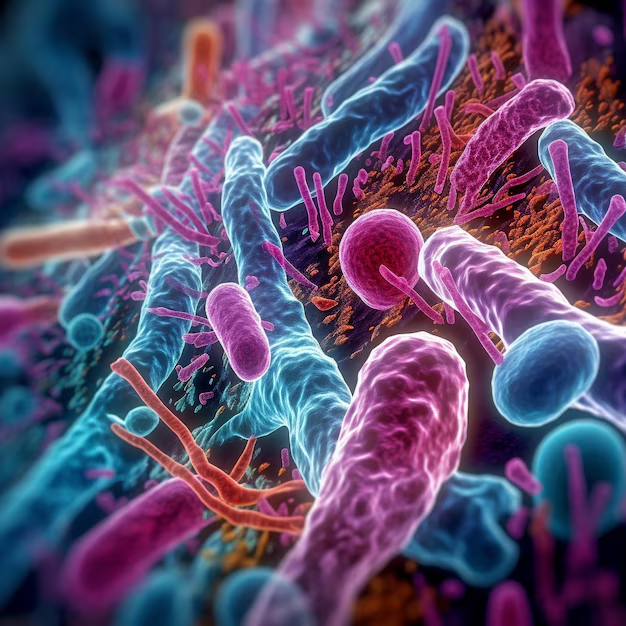
Chia Seed Polyphenols
Chia seeds contain a surprising amount of polyphenols. This includes some powerful phytochemicals such as rosmarinic acid at 80mg per 100 grams, caffeic acid at 6mg per 100 grams and chlorogenic acid at 5mg per 100 grams. Chia seeds also contain catechin and epicatechin.
Polyphenols all have antioxidant activity and this may be why chia seed oils have a high antioxidant activity. They may be able to protect certain foods and oils from oxidising quickly. This may also mean that they could reduce oxidative stress within the body along with risks of developing diseases such as diabetes and heart disease. Antioxidants from chia seeds may protect metabolic processes and prevent premature ageing.
Aspects of chia seed oils may contribute to improvements in glucose use and insulin tolerance, which could be due to antioxidants or fatty acids in chia seed oils. Simply supplementing a diet with around 40 grams of chia seeds a day reduced risks of diabetes and heart diseases, while chia seeds could also encourage weight loss. While eating 50 grams of chia seeds for 30 days was responsible for a small drop in blood pressure.
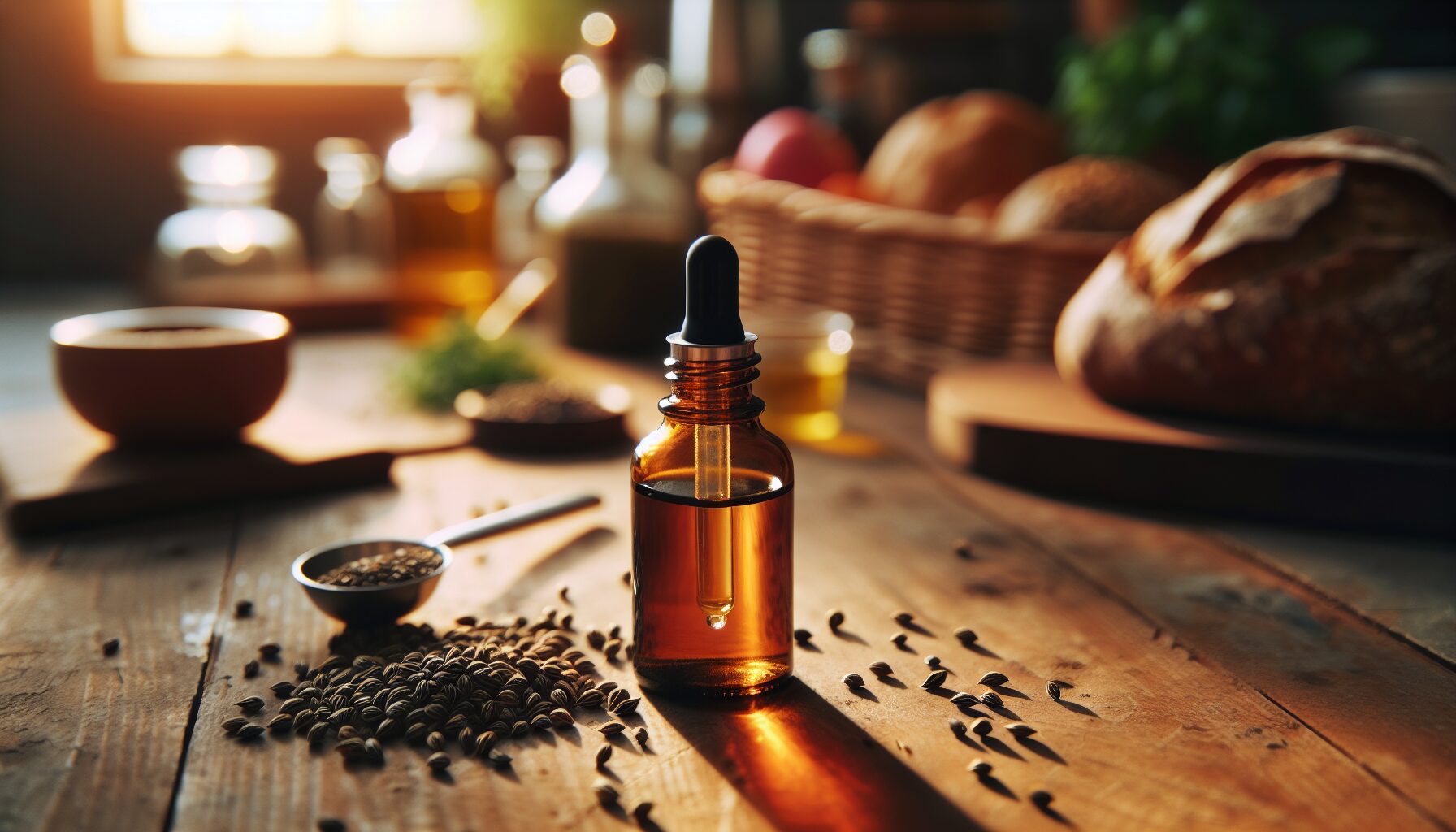
Energy Supporting Vitamins
There is a significant quantity of energy supporting B vitamins within chia seeds, including 8.68mg of niacin and 14.5µg of biotin. This is about half of your daily Niacin RDA and half of your daily recommended biotin intake.
These B vitamins are really important for supporting our metabolism, which without we would not be able to process a large number of body functions. Biotin and niacin both contribute to the optimal functioning of our bodies, reducing symptoms of fatigue or tiredness.
Vitamin B3 or niacin supports optimal mitochondrial health, DNA repair, and body growth. Biotin plays a supporting role in many energy producing processes and helps with the regulation of oxidative stress.
Electrolyte And Mineral Content Of Chia Seeds
Chia seeds are rich in important minerals, adding to their potential benefits for our health. When compared to other common cereals such as wheat, rice or corn, chia seeds contain higher levels of key minerals such as calcium, phosphorus, potassium and magnesium.
Per 100 grams, chia seeds contain 595mg of calcium, 326mg of magnesium and 642mg of potassium. These are very considerable quantities of these essential minerals providing the body with electrolytic support. In particular, the calcium content of chia seeds is high. The calcium RDA is around 1,000mg per day, so chia seeds cover a significant amount of our calcium requirements.
Chia seeds also cover a significant amount of our magnesium RDA, which is around 300mg to 400mg per day, while proving just over half of our potassium RDA. Potassium is an essential electrolyte, needed for optimal nerve and muscular functioning. Having the right levels of potassium is important and may significantly reduce the risk of strokes, providing a blood pressure lowering effect. Magnesium is also an electrolyte needed to help muscles to relax. Magnesium sufficiency is critical for optimal muscle performance and is needed for healthy energy production.
Phosphorus contributes massively to DNA production and bone formation with mineral calcium. Many people are calcium deficient and this promotes bone loss in the body. Higher bone density could contribute to improved gym results.

Zinc
Zinc is an important mineral for our health and a natural antioxidant. There is 5.56mg of zinc per 100 grams of chia seeds and covers around half of our RDA. This would make chia seeds one of the top vegan sources of zinc.
Its neuroprotective properties may help to prevent dementia, while zinc improves resistance to infections. Deficiencies in zinc are also linked to reduced testosterone levels, so zinc influences muscle formation and fertility.
Iron and Copper
Iron is also important for red blood cell formation, with chai seeds covering about half of an average RDA 6.04mg per 100 grams. This improves tissue oxygen status and encourages healthy blood flow rates. Higher oxygen levels support brain functioning, while also promoting muscle endurance.
You can get your entire RDA for copper in 100 grams of chia seeds. Copper forms key enzymes of your mitochondria and is needed to form red blood cells. Copper deficiency can lead to red blood cell deficient anaemia and excessive tiredness. It is also needed to make the fatty myelin coatings that from around nerve cells, allowing nerve signals to move quicker from cell to cell.
Manganese
In 100 grams of chia seeds there is about 7.5mg of manganese. This means you can obtain well over your RDA of manganese from chia seeds alone, which is about 2mg a day. Chia seeds are therefore a manganese superfood. Manganese is a cofactor needed throughout the body in various metabolic processes and is really essential for optimal health. Manganese deficiencies restrict bone formation, glucose tolerance and growth.
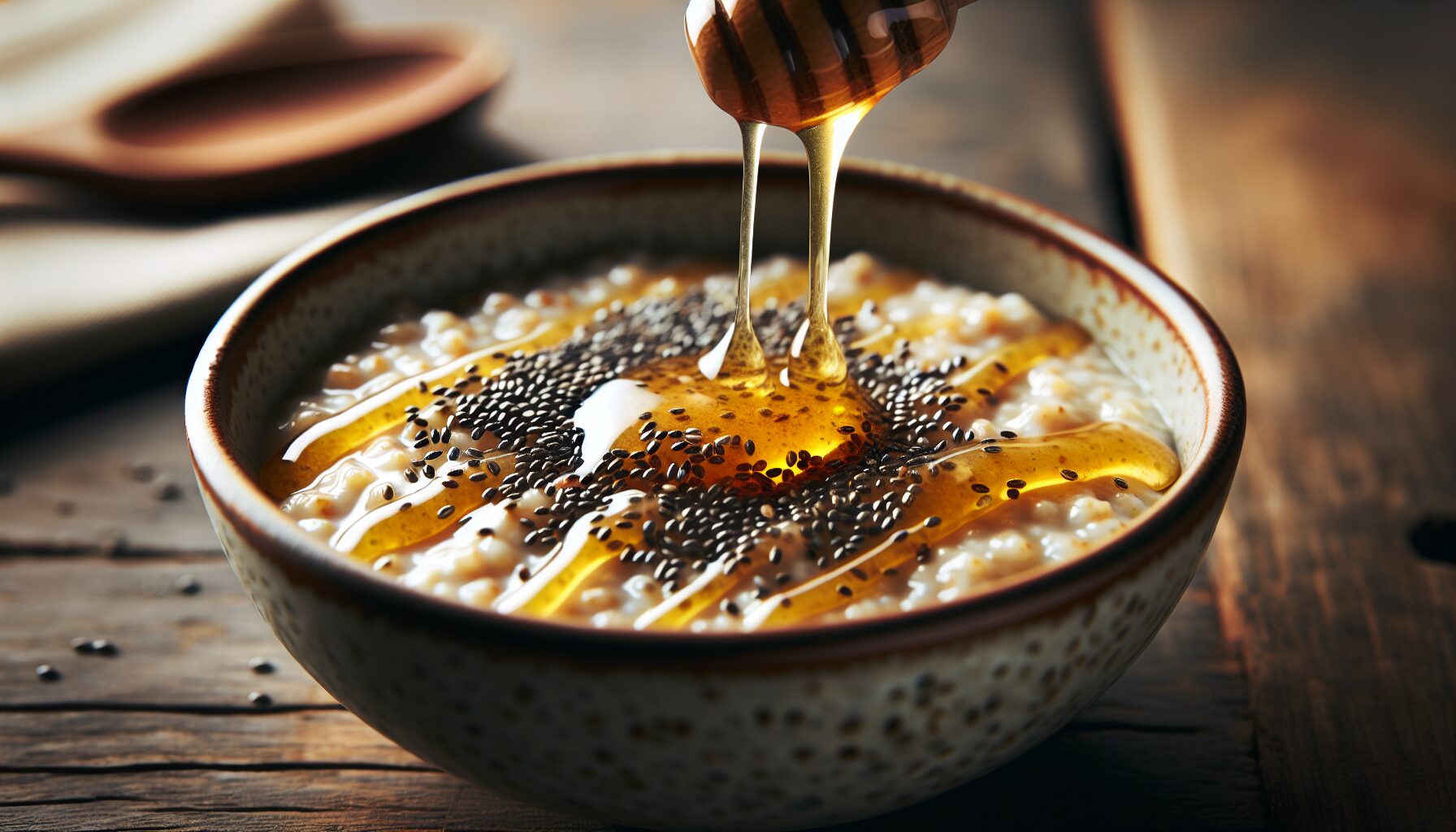
Summary
Chia seeds are really nutrient dense, providing potential health benefits through their high levels of key amino acids, minerals and healthy fatty acids. They are more nutritious than some established cereals and chai seeds are also gluten free.
Central to the health benefits from chai seeds is their fatty acid content. Chai seeds are becoming more popular in cosmetics because of their skin hydrating effects. The omega 3 and omega 6 fatty acids in chai seeds are linked to lower levels of inflammation, reduced risk of heart diseases and chronic inflammatory joint diseases. Regularly eating chai seeds may promote healthy weight loss.
Chia seeds are rich in proteins, containing twice as much protein as wheat and offering a really nutritious amino acid profile. This promotes improved protein synthesis which supports muscle recovery, immune system functioning and blood cell formation. The specific amino acids in chai seeds may also support brain functioning, while L Arginine may support improved athletic performance.
There is an astronomical amount of dietary fibre within chia seeds, which promotes more optimal gut microbe health. Our gut microbes can affect inflammation, immunity and brain health. Chia seeds also seem to improve intestinal cell health.
Chia seeds contain a surprising amount of polyphenols. Polyphenols all have antioxidant activity and this contributes to a reduction in risk of developing diseases. They are also rich in key minerals that could support optimal neuromuscular functioning and bone formation. These could contribute to mild performance enhancement.
Chia seeds could have the potential to improve your diet, being rich in various amino acids, fatty acid and minerals that support essential processes in the body.
For more interesting articles, see the main articles page below.



